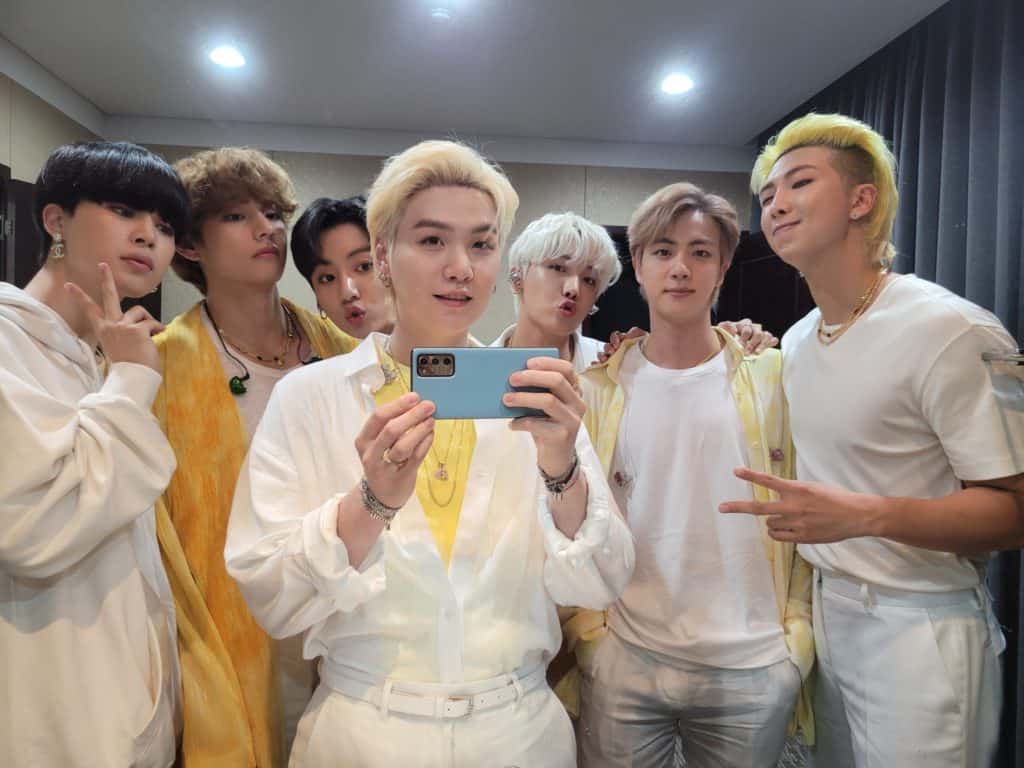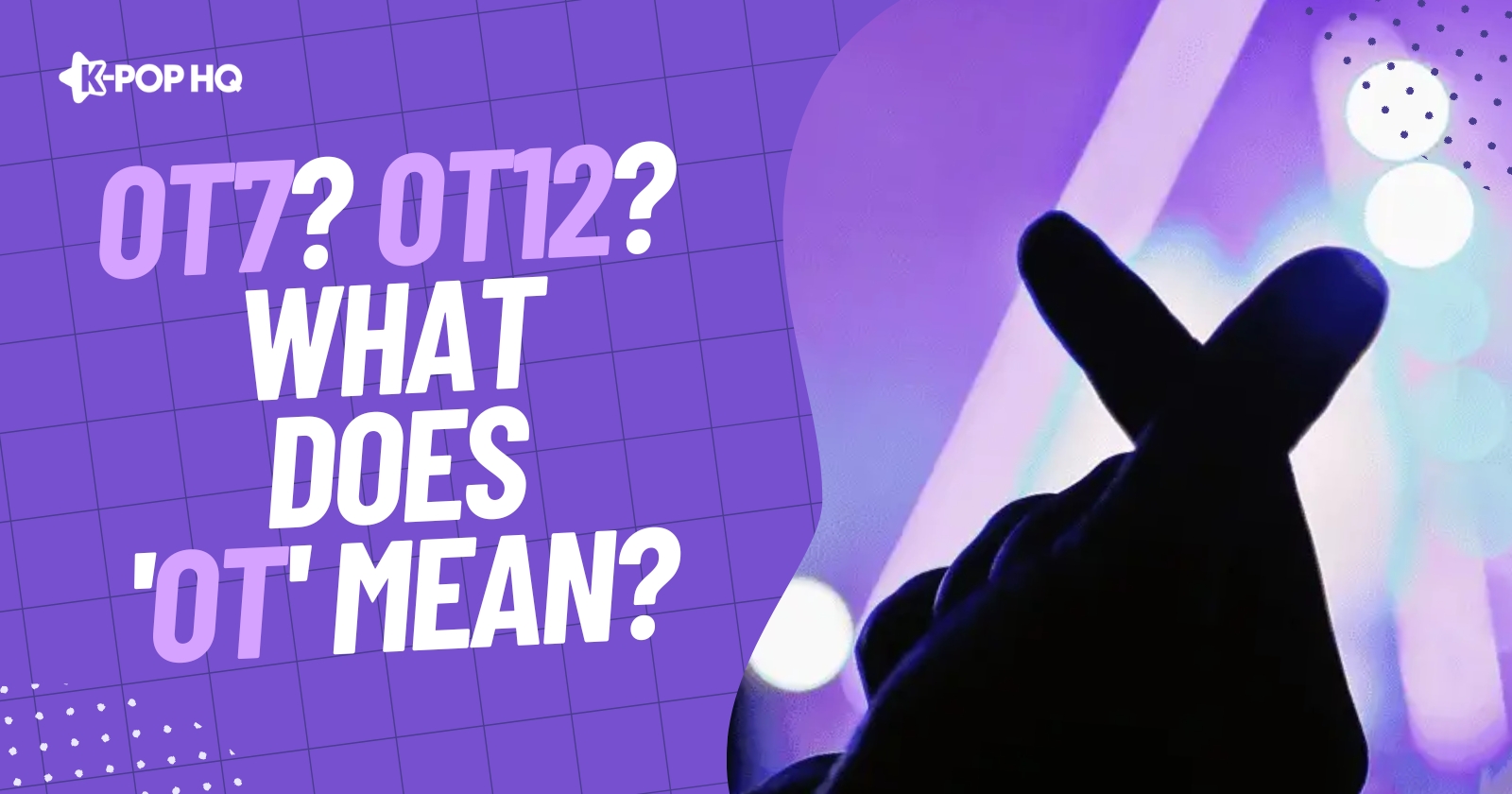Heard fellow fans referring to their favorite K-Pop idols as OT5, OT7, or even OT1? Sometimes, the number corresponds to the number of members in a group — but not always, making matters even more confusing.
Keep reading to learn the meaning of ‘OT’ in K-Pop, where the acronym comes from, and why the numbers don’t always add up.
OT Meaning in K-Pop
In a nutshell: ‘OT’ stands for ‘One True’, and it’s typically used to refer to the number of group members a fan supports. Keep reading to learn more about where the term comes from, whether it’s positive or negative, and more.
As such, in K-Pop fandoms, OT is usually followed by the number of members in a group; BTS’s 7 members, for example, are often referred to as OT7. When a fan says “I’m OT7,” that means they support the whole group.

But where does OT come from? And what would it mean if an ARMY said “I’m OT6,” for example?
Where does OT come from?
OT has been used for a long time in K-Pop fandoms, but it dates back even further than that. In fact, the earliest known usage was all the way back in 1984, over 38 years ago!
However, the original form of OT was actually ‘OTP’, which stands for ‘One True Pairing’. The term OTP refers to a fan’s favorite couple from a piece of media — in other words, the one true ‘ship’ to end all other ships.
According to common fandom history, OTP was first coined by a Star Trek fan to describe the relationship between the characters Kirk and Spock. The term soon swept across fandoms and began to spawn similar terms, like OT3 — the best trio of characters in a piece of media.
Naturally, OT3 grew into OT4, OT4 became OT5, and the rest is history.
Is OT positive or negative?
Most of the time, K-Pop fans use OT in a positive way, showing their support for every member in a group. But what if the number you see doesn’t match up with the number of members?
Sometimes, this means the fan is using ‘OT’ in a negative or “hateful” way, but that’s not always the case. There are actually a multitude of reasons why the numbers may differ.
When the number is smaller…
As an example, imagine a ReVeluv using the term “OT4,” even though Red Velvet is a 5-member group. Why might they do this?
- Disliking a member – some may call themselves “OT4” because they dislike or choose not to support one of the members.
- Lineup changes – some may use “OT4” to refer Red Velvet before Yeri was added to the group, seven months after their debut.
- Missing members – some may use “OT4” to refer to Red Velvet when they’re temporarily promoting without a member; for example, when Joy was absent from performances while filming a K-Drama.

When the number is bigger…
Let’s take Girls’ Generation, as an example. The second-generation sensation has 8 members, so what does it mean when a SONE is “OT9?” Typically, there’s only one reason:
- Lineup changes — Up until September 2014, when Jessica Jung left the group, Girls’ Generation had 9 members. An “OT9” fan is someone who still supports or prefers the group with all original members.

When the number is ‘1’…
For many new K-Pop fans, the most confusing of all is an “OT1” fan. Typically, someone refers to themselves as OT1 is a “solo stan” — a fan who only supports or likes one singular idol in a group.
When that fan also actively dislikes or hates the other members in the group, they may be referred to as an “akgae.”
How to use OT in conversation
Ready to incorporate OT into your stan lingo? Here are two ways you can use it:
- Describing yourself: Love every member of TWICE? You may want to say, “I’m an OT9 fan.”
- Describing your actions: Perhaps your love goes so far that you want to own every member’s photocards; if so, you can tell people, “I collect OT9.”
- Describing the group: Referring back to a time when Jeongyeon or Mina were absent from group promotions? You could refer to the remaining members as “OT8 TWICE”, but be wary. Some fans may mistakenly think you dislike a member, so make sure you check how fellow fans use the term first and clarify your intentions if necessary.
Conclusion
Now you know: OT stands for “One True,” and it’s usually followed by a number like OT7. Fans use the term to show how many members they support, from the whole group to just one bias.







